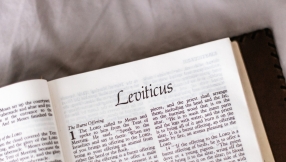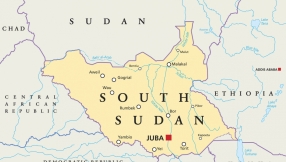The predominantly Arab nation experienced its largest voter turnout in decades last Saturday. About 41 per cent of the population lined up for hours to cast a vote. The referendum paved the way for a parliamentary vote in June and a presidential election in August.
The vast majority of Christians voted “no” in the referendum, contrasting more than 70 per cent of the population that voted “yes.”
“It is not that the Christian population does not want the constitution to be changed,” said a source from Open Doors, a ministry that supports persecuted Christians.
“They feel that this change is too quick and will only benefit the established political blocs [such as] the Muslim Brotherhood and the National Democratic Party (NDP).”
This sentiment is echoed by secular opponents who point out that independent political groups will not have time to take root, raising the possibility that elements of the old regime may return to power.
Remnants of the former ruling NDP remain an active political force that enjoys military backing despite having lost power in the recent unrest that toppled its leader and longtime Egyptian president, Hosni Mubarak.
Christians in Egypt have long endured Mubarak’s complacency to religious hate crimes that included arson, torture and murder. In some instances, police and judges have released prime suspects in Coptic Christian murder cases. The former president also ignored pleas for help in cases involving abduction, rape and forced conversion of young Coptic women.
Muslim converts to Christianity are routinely subjected to harassment and death threats.
Adding to the fears is the growing prominence of longtime NDP rival, the Muslim Brotherhood. For more than 60 years, the movement existed as an illegal but tolerated force whose influence stretches to trade unions, professional associations, municipalities and parliament.
The Muslim Brotherhood in its current form is a bewildering contradiction of old and new. Born of anti-colonial and legalist sentimentality in 1928, the group advocated armed resistance against Zionist expansion in Palestine prior to World War II.
However, its founder Hassan al-Banna opposed violence in Egypt and advocated reformist policies that blended Islamic doctrine with secular welfare. Banna was assassinated in 1949 under orders from Britain, which controlled Egypt at the time, and the fraternity once again came under repression following the 1952 revolution that won Egypt its independence.
Some of its members eventually became radicalised from years spent in prison. Others fled to Saudi Arabia where they were influenced by Wahhabism, a branch within Sunni Islam that is considered extremist even by many Sunni and Shia Muslims. A few more escaped to westernised nations, where they came into direct contact with the European tradition of democratic freedom. And others simply clung to old party traditions.
The modern Brotherhood includes young moderates whose political views on issues such as women's rights and religious freedom mesh with Western values, while older conservatives rail against American imperialism and call for establishing an Islamic state. It is not clear which faction represents the movement as a whole.
On Wednesday, Brotherhood leader Mohamed Badie extended an invitation for dialogue with young Copts in an apparent bid to unite opposition groups into a single political party that would vie for parliamentary positions.
“It’s great that they want to reassure the Christians, but their words do not make up for a lack of tangible reassurances and rights for the country’s Copts in the Constitution,” said human rights activist Sameh Fawzy, according to Egyptian magazine Al-Ahram.
Fawzy points to a 2007 draft – which the Brotherhood denies exists – banning Christians and women from representing the Muslim Brotherhood in its bid for the presidency.
Despite optimism for change, Christians fear being marginalised once again in the predominantly Muslim nation. Egypt currently ranks 19th on the Open Doors World Watch List of countries with the worst Christian persecution.
“It is important that any changes in the constitution include all the voices of Egypt, especially the minority groups,” said Carl Moeller, president and CEO of Open Doors USA. “We need to pray for Christians in Egypt, that their voices will be heard.”
Egypt is home to the largest population of Christians in the Middle East. There are an estimated 10 million Coptic Christians in Egypt.
Most Popular
Stay up to date with Christian TodayNews

NI conversion therapy proposal will criminalise innocent behaviour
A proposal to ban conversion therapy in Northern Ireland has been labelled "jellyfish legislation".

Renewing the old and sanctifying the new in education
Hebrew academic and Jewish scholar Irene Lancaster reflects on what society can learn from the Jewish approach to education and the importance of nurturing the soul.

Half of students think the Bible is relevant today
Is the glass half empty, or is it half full?

Lancashire called to pray for partners in crisis-hit South Sudan
The Diocese of Blackburn has forged strong ties with its South Sudanese counterpart in Liwolo.





